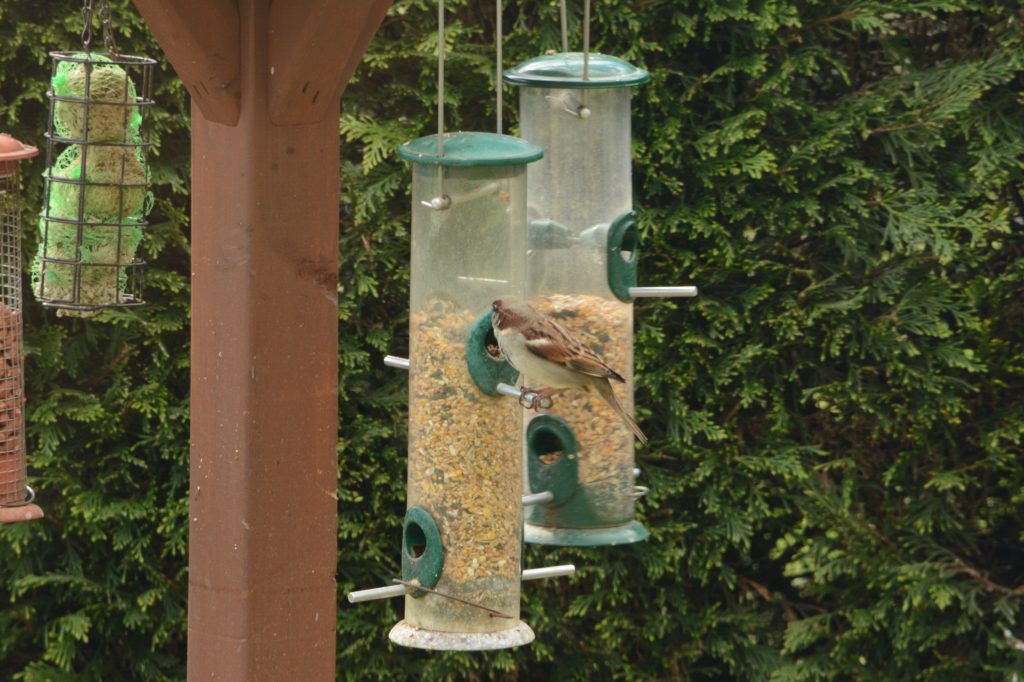FATS: The way to do it
Scottish Water is encouraging customers to keep the water cycle going and help garden birds by disposing of cooking fats, oils and grease responsibly during the festive season and beyond.
As families across Scotland prepare for Christmas dinner and festive fry-ups, Scottish Water is reminding them that over time, cooking fats, oils and grease poured down the sink or drain can build up and cause blockages in drains and sewer pipes that prevent the waste water draining away properly causing extremely unpleasant internal sewage flooding or environmental pollution.
It is important that families dispose of cooking fats, oils and grease responsibly by leaving them to cool and placing in a suitable container (like an empty milk carton) and then placing in the bin or recycled if possible.
Animal fats and meat juices can also harm our feathered friends and therefore such kitchen scraps should not be used to feed winter birds.
Chris Bailey, Advisory Manager for RSPB Scotland, said: “Feeding garden birds is a popular activity in Scotland as well as a lifeline for many species during winter when natural sources of food are in short supply. However, certain types of food are very bad for birds and cooking fat is one of them.
“The problem comes when cooking fat mixes with meat juices and sets; the consistency is prone to smearing which can damage birds’ feathers at a time they need them in a good condition to stay warm. The mixture will also go off quickly providing a breeding ground for diseases. Don’t be put off from feeding our feathered friends though – there are plenty of safe options including bird cake and seed mixes or kitchen scraps like cooked potato, dried fruit and mild grated cheese.”
Peter Farrer, Scottish Water’s Chief Operating Officer, added: “While it is important that our customers do not pour fats, oils and grease down the kitchen sink or drain, it is also vital that they dispose of such residue responsibly, rather than leaving it out for winter birds.
“There is a misconception that sewers are vast, cavernous tunnels but in truth the majority are very narrow pipes, of no more than a few inches in diameter. It is very easy for these narrow pipelines to become blocked, causing waste water to back up and spill. Reducing blockages would not only protect customers from internal flooding or environmental pollution – it would also help Scottish Water continue to keep average customer charges low in Great Britain and free up funds for investment.”
Nationally, Scottish Water spends £7million a year responding to over 40,000 calls about blockages in the sewer network, and 80% are caused by household waste that should go in the bin.
Fats, oil and grease in liquid form may not appear to be harmful but as it cools it congeals and hardens. This can then cause blockages to the inner lining of drainage pipes, which can lead to waste water flooding into gardens and properties, causing a health hazard to wildlife and the local environment. In extreme cases, blocked sewers can spill into burns, rivers, streams and beaches, causing environmental damage.
FATTY FACTS
• Fat blockages cause pollution, flooding, public health hazards and have major clean up costs.
• Whether it is saturated fat (like lard), mono-unsaturated fat (like olive oil) or vegetable oil, they all congeal and harden.
• It is an offence under the Sewerage (Scotland) Act 1968 to interfere with the free flow of the sewers – fats, oils and grease do this when they congeal.
• From the 21st of December it will be a specific offence for traders to pass fats, oils and grease to the sewer.
Scottish Water advises customers to allow fats, oils and grease to cool before disposing of it responsibly in a fat trap or by popping it into a sealable container and then into the bin, to be disposed of along with the remainder of their household rubbish.
Look out for Scottish Water’s advert that will be shown over Christmas Eve and Christmas Day to find out how to properly dispose of the cooking fat, oil and grease from your Christmas dinner.
RSPB Scotland points out that the ‘fat balls’ you can buy CAN be left out for birds: Fat balls and other fat-based food bars are excellent winter food. If they are sold in nylon mesh bags, always remove the bag before putting the fat ball out – the soft mesh can trap and injure birds.
You can make your own bird cake by pouring melted fat (suet or lard) onto a mixture of ingredients such as seeds, nuts, dried fruit, oatmeal, cheese and cake. Use about one-third fat to two-thirds mixture. Stir well in a bowl and allow it to set in a container of your choice. An empty coconut shell, plastic cup or tit bell makes an ideal bird cake ‘feeder’.
Alternatively, you can turn it out onto your bird table when solid. Lard and beef suet on their own are fine as they re-solidify after warming and as they are pure fat, it is not as suitable for bacteria to breed on. Unlike humans, birds need high levels of saturated fat, such as raw suet and lard. They need the high energy content to keep warm in the worst of the winter weather, since their body reserves are quickly used up, particularly on cold winter nights.
Substances like cooking fats can easily be smeared onto the feathers, destroying the waterproofing and insulating qualities. Garden birds are practically unable to metabolise salt. It is toxic to them in high quantities and affects their nervous system. Under normal circumstances in the wild, birds are unlikely to take harmful amounts of salt. Never put out salted food onto the bird table, and never add salt to bird baths to keep water ice-free in the winter.
Alternative food options for birds include: Bird seed mixtures, black sunflower seeds, nyjer seeds, peanuts, bird cake and food bars, mealworms, biscuit crumbs, mild grated cheese, cooked rice, uncooked porridge oats, cooked potatoes, and bruised fruit.
For more information from Scottish Water visit www.scottishwater.co.uk/cycle. Follow us on Twitter @scottish_water and Facebook www.facebook.com/scottishwater






